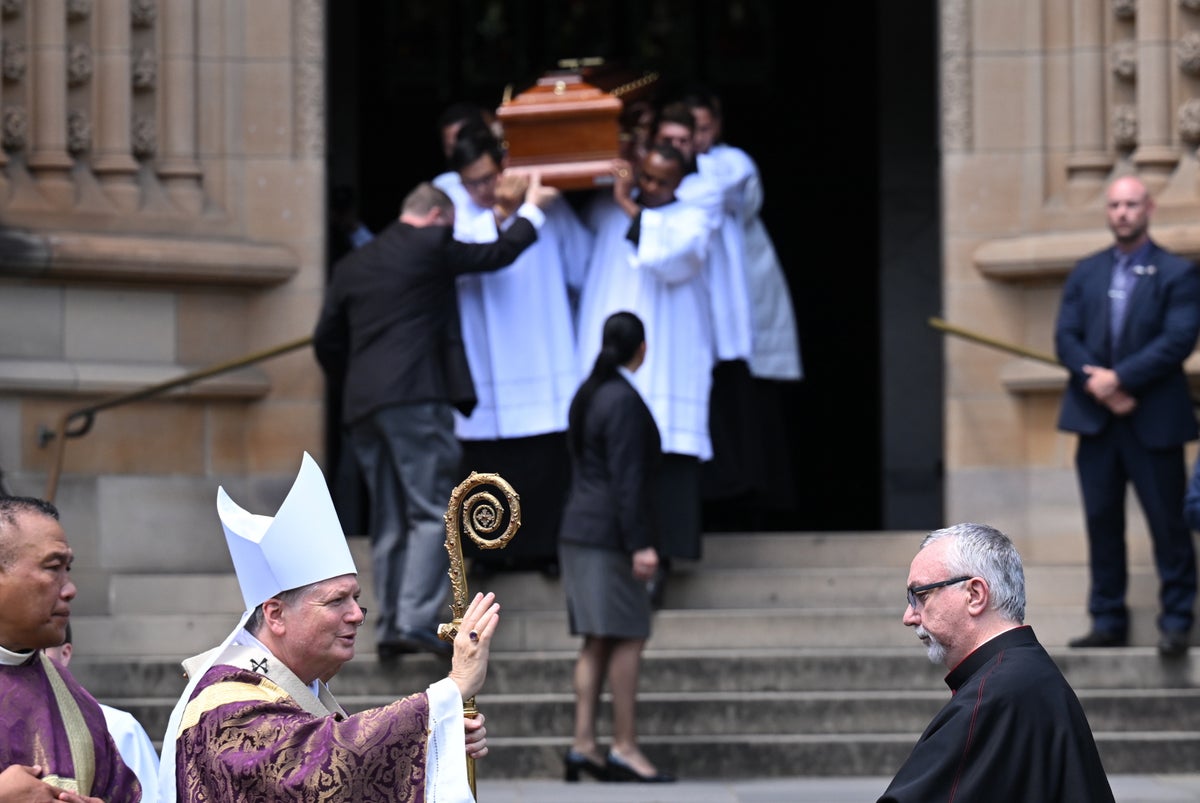
Mourners and protesters clashed ahead of the funeral service for controversial cardinal George Pell in Sydney on Thursday morning.
The cardinal, who was once the most senior Catholic to be convicted of sex abuse, died last month in Rome aged 81 and was returned to Australia to be interred at the crypt of St Mary’s Cathedral.
Hundreds of protesters shouted slogans from the park across the cathedral, denouncing Pell, a staunch conservative who had riled LGBT+ rights supporters and was among church leaders blamed for inaction on clergy sex abuse.
“Pell Burn In Hell,” read one of the signs carried by the protesters and displayed on cars, as others screamed, “George Pell, go to hell”.
Tensions flared when several faithful tried to remove colourful ribbons that the protesters had displayed to symbolise abuse victims.
“[We’re here to] show solidarity with the victims and the survivors of what’s happened through the Catholic Church, but particularly George Pell,” Layne Elbourne, a musician, told Reuters.
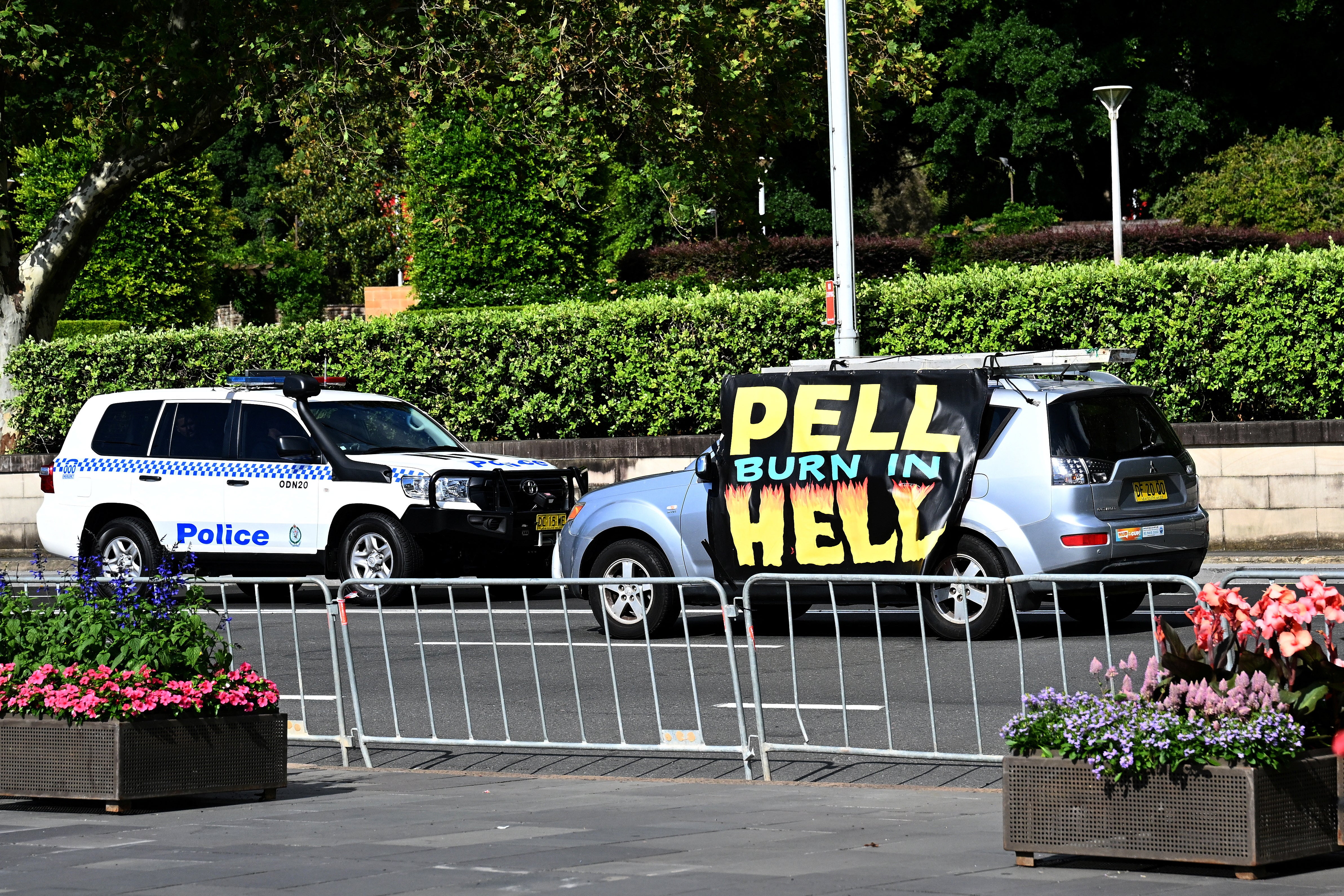
The local police said it had dropped a court bid to block gatherings after protesters agreed to change their initial protest route.
Cardinal Pell served as the Archbishop of Sydney for over a decade before being called to the Vatican in 2014. He had served as the Archbishop of Melbourne from 1996 to 2001, the period during which he was alleged to have sexually abused two choirboys.
He returned to Australia in 2017 to fight abuse allegations made by multiple complainants over decades in his home state of Victoria. The first trial ended with a deadlocked jury, but he was convicted after his second trial with a unanimous verdict.
Only the charges that he abused two choirboys during his early tenure as the Archbishop of Melbourne, however, had led to convictions.
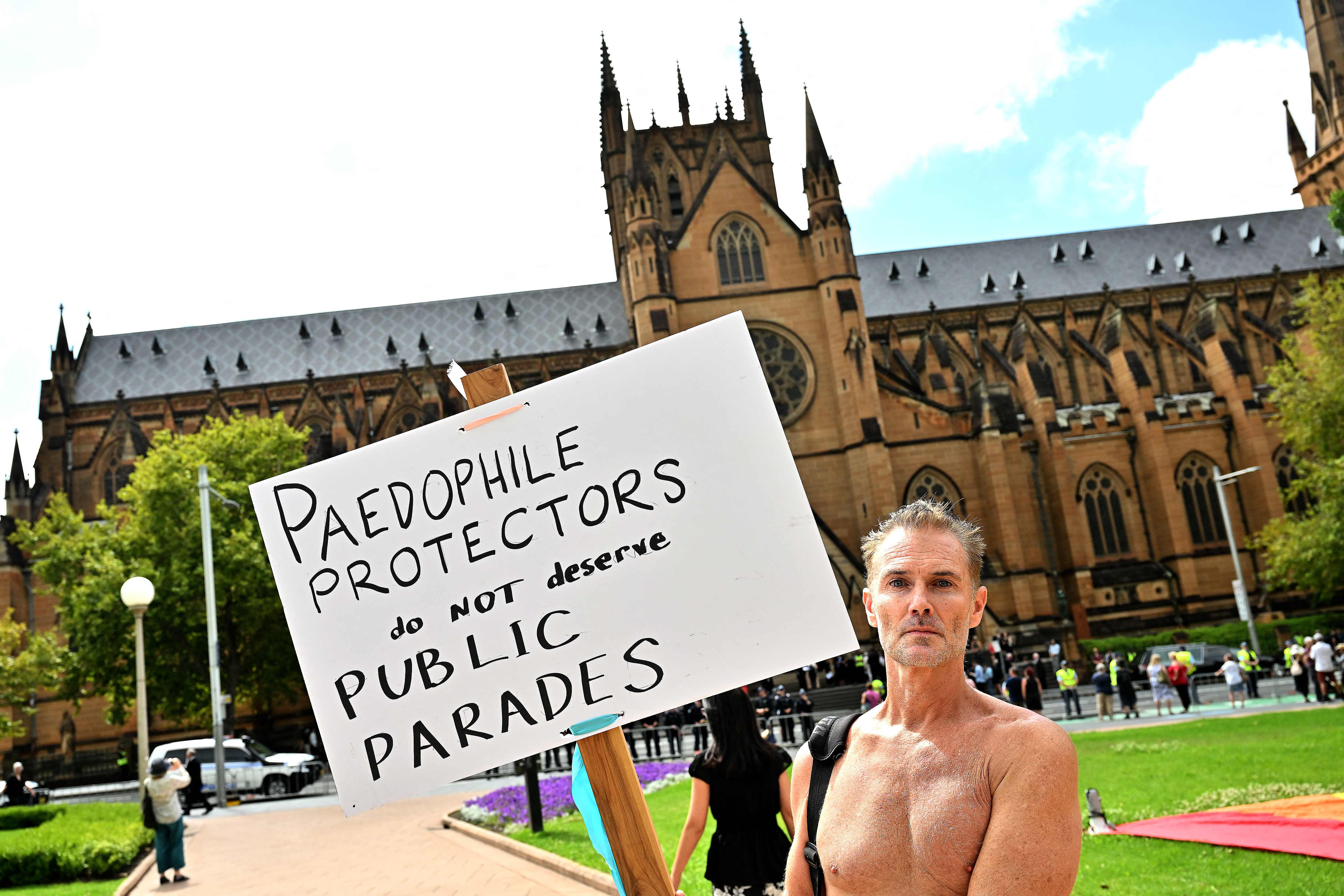
In 2020, an Australian appeals court ruling quashed Pell’s convictions, allowing him to walk free after spending 13 months in prison.
The cardinal was known for notoriously angering members of the LGBT+ community by repeatedly refusing to give Communion to activists wearing rainbow-colored sashes.
He was also at the centre of a controversy, due to his views, over whether the Catholic Church had properly been held to account for past child sex abuse. A national inquiry into institutional responses to child sex abuse in 2017 found Pell knew of the clergy abusing children in the 1970s and did not take adequate action against it.
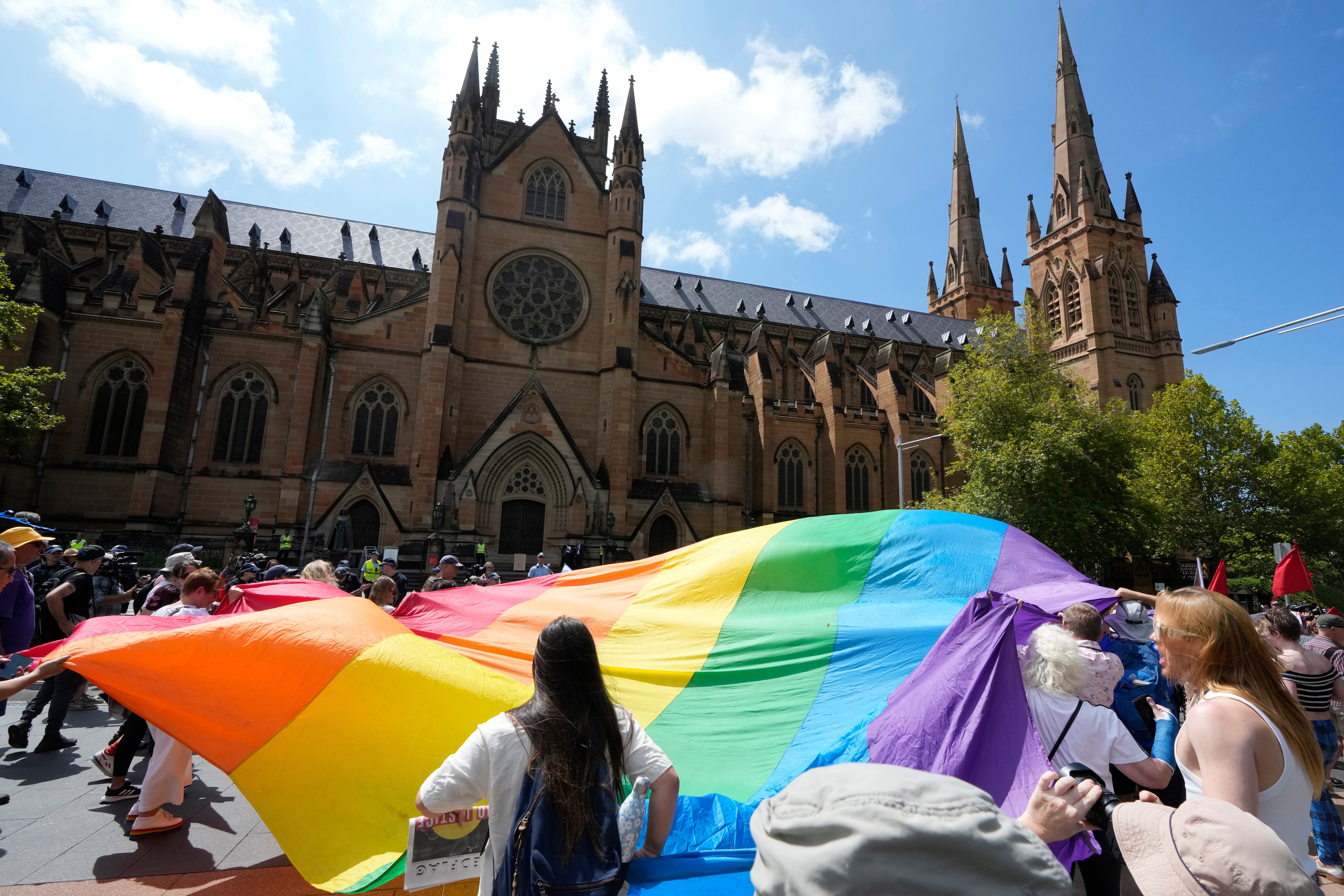
In a statement, Pell had then said he was “surprised” by the inquiry’s findings and the “views are not supported by evidence”.
His funeral was attended by former prime ministers John Howard and Tony Abbott, while current prime minister Anthony Albanese was represented by a government minister.
Sydney Archbishop Anthony Fisher led a requiem Mass, where he called Pell a “giant of the Catholic Church in Australia”.
He told mourners that the once third-highest-ranking cleric in the Vatican was the author of a dozen books, including three volumes of a diary he wrote in prison.
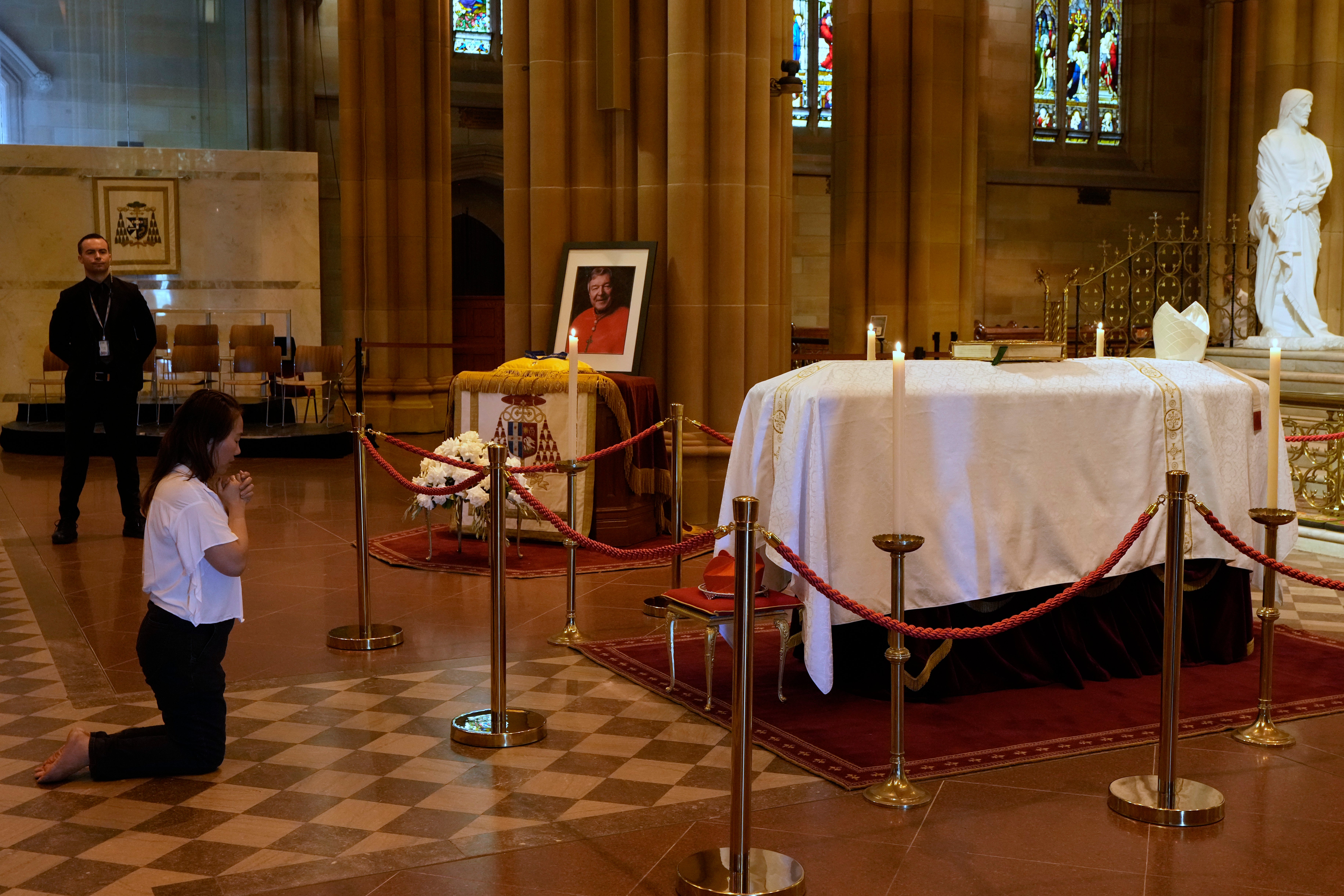
“That was one happy fruit from 404 days spent in prison for crimes he did not commit following a media, police and political campaign to punish him whether guilty or not,” said Fisher, a longtime supporter of Pell.
“Even after he was unanimously exonerated by the High Court of Australia, some continued to demonize him. But many appreciate the legacy of this most influential churchman in our nation’s history.”
Pope Francis sent a message to the funeral that said Pell “laid the foundations with determination and wisdom” of the Vatican’s economic reforms. He was appointed by the Pope in 2014 to be the first prefect of the newly created Secretariat for the Economy tasked with reforming the Vatican’s finances.







